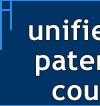Research seminar
Thursday 10 September, 16:00, Room EB 202
It is well-known that copyright law has been originally conceived as a tool to provide incentives for authors to create for the benefit of society, by securing them a fair remuneration for the use of their works. In order to enable future creativity, some uses are however kept outside the control of the right owner through limitations to the exclusive right. These limitations have therefore, alongside the exclusive right, an essential role to play in providing a good and vital creative environment. Uses covered by a limitation can be free of charge or lead to an obligation to pay a fair remuneration to the creator. In these last cases, these “limitation-based remuneration rights” are often called “statutory licenses”, but this terminology is not always uniformly applied. As these remunerations can provide significant revenues for creators, they constitute interesting tools for legislators in order to avoid the blocking effect of exclusivity, while at the same time ensuring that the creator can participate fairly to the creative reuse of their works. However, this option – long-established in many European countries for certain limitations for private use (the most frequent being the so called “private copy exception”) or for reproductions for education and research purposes – has been given relatively little consideration in the context of creative reuses, especially in the context of derivative works. So far, the discussions have been concentrated rather on how to “flexibilize” existing limitations such as parody or quotation or to establish an open clause such as fair use, or even to implement a specific limitation for “user-generated content” as it was recently done in Canada. This paper is intended to fill that gap by exploring whether the implementation of a dedicated limitation to copyright law can offer a satisfying mechanism to foster creative uses, in particular in the context of derivative works, and how to design such limitation so that it can be beneficial for the creator of the initial work.
Christophe Geiger is Associate Professor, Director General and Director of the Research Department of the Centre for International Intellectual Property Studies (CEIPI) at the University of Strasbourg (France) and affiliated senior researcher at the Max Planck Institute for Innovation and Competition in Munich (Germany).





